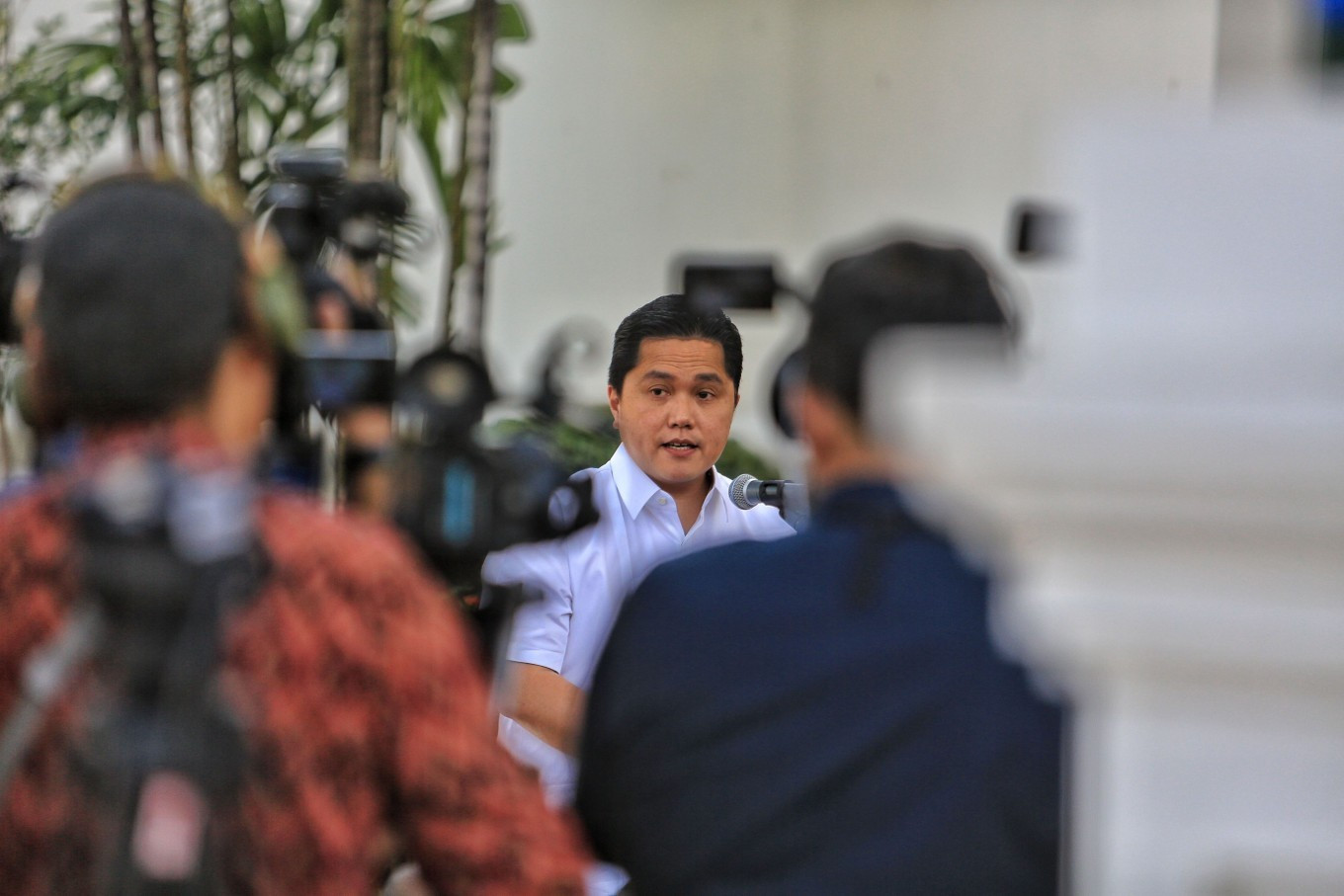Popular Reads
Top Results
Can't find what you're looking for?
View all search resultsPopular Reads
Top Results
Can't find what you're looking for?
View all search resultsAnalysis: State-owned banks overhaul leadership, coordinate buybacks
Change text size
Gift Premium Articles
to Anyone
I
n a sweeping move that reshaped Indonesia’s financial landscape, the annual shareholders’ meetings (RUPS) of state-owned banks Bank Rakyat Indonesia (BBRI), Bank Mandiri (BMRI), and Bank Negara Indonesia (BBNI) not only approved multi-trillion-rupiah share buyback programs but more importantly ushered in a new era of leadership at the country’s largest state-owned banks. Market reacts positively to this sudden overhaul, with the Jakarta Composite Index (JCI) rebounding slightly on the final trading day before the long holiday. The index closed at 6,510.62 on Mar. 27, marking a 0.59 percent increase from the previous day’s close.
The most high-profile departure came from BRI, where Sunarso, who had served as president director since 2019, was removed from his position. His replacement, Hery Gunardi, formerly the president director of Bank Syariah Indonesia (BSI), was widely seen as the government’s preferred candidate. Gunardi’s leadership in successfully merging three state-owned Islamic banks into BSI demonstrated his capability in overseeing complex financial transitions, making him a preferred choice to lead BRI during this time of economic uncertainty.
At Bank BNI, Putrama Wahju Setyawan, previously the vice president director of BNI, replaced Royke Tumilaar as the new president director, while his previous position as vice president director was assumed by Alexandra Askandar, a seasoned banker who was formerly Bank Mandiri’s vice president director since October 2020.
The appointment of Alexandra Askandar as vice president director at BNI was a surprise, as rumours circulating in the market leading up to the March RUPS assumed that she would become the new president director at Bank Mandiri. Meanwhile, Darmawan Junaidi maintains his position as Bank Mandiri’s president director instead.
Along with the leadership change, these three state-owned banks (himbara) also approved major buybacks in rapid succession. Starting with BBRI on Mar. 24, when it greenlit a buyback plan worth up to Rp3 trillion during its RUPS. The following day, BMRI followed suit, authorizing a Rp1.17 trillion buyback. Finally, on the last trading day before the holiday, BBNI committed to a buyback of up to Rp1.5 trillion, completing a three-day rally fueled by these interventions.
These swift moves were prompted by a series of market shocks that had rattled the Indonesian financial sector since the beginning of 2025. The most severe of these came on March 18, when the JCI plummeted by 7 percent, forcing regulators to temporarily halt trading for 30 minutes.
The market turmoil was driven by a combination of global and domestic factors. One of the primary catalysts was a significant capital outflow triggered by the United States’ introduction of protectionist trade and investment policies. The U.S. measures, which included increased tariffs and restrictions on capital movement, prompted investors to shift their portfolios toward safer assets in developed markets. As a result, emerging economies like Indonesia faced heightened liquidity pressures. This capital flight was evident in the sharp drop in foreign ownership of Indonesian government bonds (SBN), which fell to just 14 percent—a significant decline over the past decade, as reported by the Finance Ministry.



















